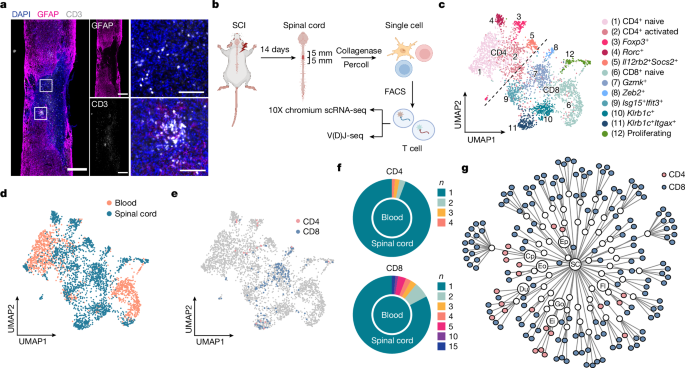전한울
2024년 9월 4일
- Spinal cord injury 동물 모델을 이용한 injury responsive T cell 의 신경보호 기능에 관한 연구
(IFN-gamma를 통한 myeloid cell modulation)
Abstract
Traumatic injuries to the central nervous system (CNS) afflict millions of individuals worldwide, yet an effective treatment remains elusive. Following such injuries, the site is populated by a multitude of peripheral immune cells, including T cells, but a comprehensive understanding of the roles and antigen specificity of these endogenous T cells at the injury site has been lacking. This gap has impeded the development of immune-mediated cellular therapies for CNS injuries. Here, using single-cell RNA sequencing, we demonstrated the clonal expansion of mouse and human spinal cord injury-associated T cells and identified that CD4+ T cell clones in mice exhibit antigen specificity towards self-peptides of myelin and neuronal proteins. Leveraging mRNA-based T cell receptor (TCR) reconstitution, a strategy aimed to minimize potential adverse effects from prolonged activation of self-reactive T cells, we generated engineered transiently autoimmune T cells. These cells demonstrated notable neuroprotective efficacy in CNS injury models, in part by modulating myeloid cells via IFNγ. Our findings elucidate mechanistic insight underlying the neuroprotective function of injury-responsive T cells and pave the way for the future development of T cell therapies for CNS injuries.



